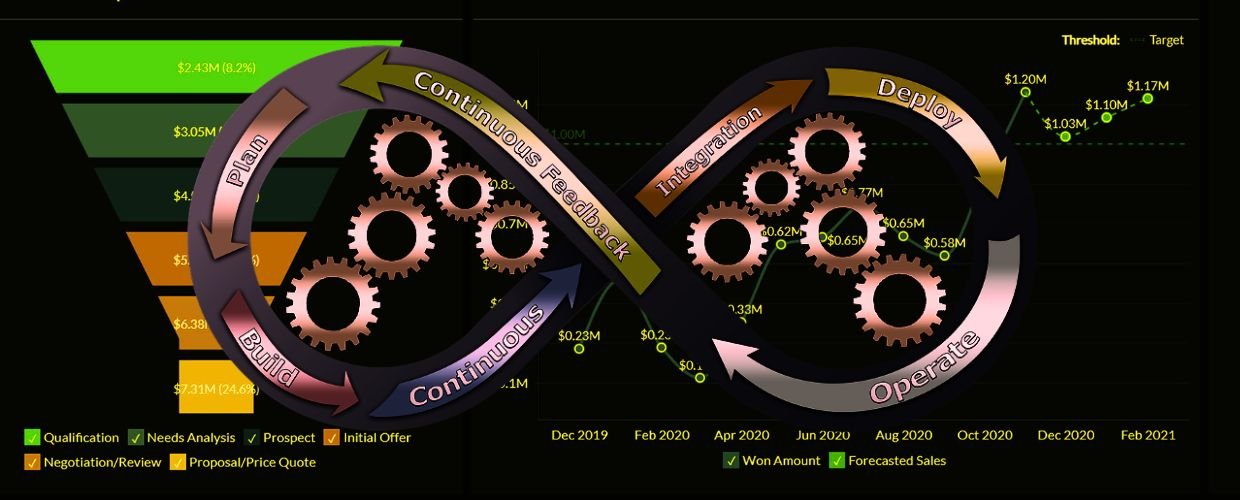In today’s data-driven world, businesses generate vast amounts of information that can be leveraged to gain valuable insights and make informed decisions. Business Intelligence (BI) software solutions have emerged as a powerful and effective tool for transforming raw data into actionable intelligence. This article explores the benefits of leveraging BI software and its impact on operational efficiency.
Data-driven Decision Making
BI software enables businesses to make data-driven decisions by comprehensively viewing their operations. With BI dashboards and reports, organizations can monitor key performance indicators (KPIs) in real time, identify trends, and uncover patterns. It enables stakeholders to make informed decisions based on accurate and up-to-date information rather than relying on gut instincts or incomplete data. Data-driven decision-making reduces the risk of errors, improves the quality of strategic choices, and enhances overall operational efficiency.
Improved Data Accessibility and Visualization
BI software simplifies data access and visualization, making it easier for users to extract insights from complex datasets. Instead of sifting through spreadsheets and databases, users can create interactive dashboards that consolidate data from multiple sources into a single, intuitive interface. These dashboards can be customized to display relevant metrics, charts, and graphs, enabling users to understand and interpret data quickly.
By democratizing data access and visualization, BI software empowers employees at all levels to make informed decisions and take ownership of their work processes. By analyzing and visualizing data, BI software empowers organizations to enhance operational efficiency, optimize processes, and drive growth.
Streamlined Reporting and Analysis
Traditionally, generating reports and conducting in-depth analysis required significant time and effort. BI software automates these processes, streamlining reporting and analysis tasks. Users can create customized reports with a few clicks, eliminating manual data gathering and formatting. BI software offers advanced analytics capabilities, including data modeling, forecasting, and predictive analytics. It enables organizations to uncover hidden insights, identify areas for improvement, and optimize operational processes. Streamlined reporting and analysis save time and enable proactive decision-making and continuous performance monitoring.
By integrating BI into their operations, organizations can comprehensively understand their business processes and implement data-driven strategies to enhance efficiency. BI software empowers organizations to track key metrics, monitor process performance, and identify patterns and trends that can lead to operational enhancements. This level of visibility and insight allows organizations to make informed decisions that drive continuous improvement.
Enhanced Collaboration and Real-time Monitoring
BI software facilitates collaboration and communication within organizations. Users can share dashboards, reports, and insights with colleagues, fostering a data-driven culture. By promoting transparency and knowledge sharing, BI software enables teams to align their efforts, identify bottlenecks, and drive operational improvements collectively. Additionally, BI software provides interactive features such as commenting and annotations, allowing users to collaborate directly within the platform. Enhanced collaboration and communication lead to better teamwork, streamlined processes, and improved operational efficiency.
Operational efficiency relies on the timely identification and resolution of issues. BI software enables real-time monitoring of KPIs, allowing organizations to address potential problems proactively. Users can set up alerts and notifications based on predefined thresholds, ensuring they are promptly informed of deviations or anomalies. Real-time monitoring empowers organizations to take immediate corrective actions, minimizing downtime, reducing costs, and optimizing operational efficiency.
Conclusion
In an increasingly competitive business landscape, operational efficiency is crucial for success. Business Intelligence software empowers organizations to harness the power of data, driving insights that enhance decision-making and optimize operational processes. By enabling data-driven decision-making, improving data accessibility and visualization, streamlining reporting and analysis, enhancing collaboration and communication, and providing real-time monitoring and alerts, BI software paves the way for improved operational efficiency. Organizations that embrace BI software gain a competitive advantage by leveraging data to fuel growth, maximize productivity, and drive innovation. With its transformative capabilities, BI software is an indispensable tool for businesses seeking to thrive in the data-driven era.



